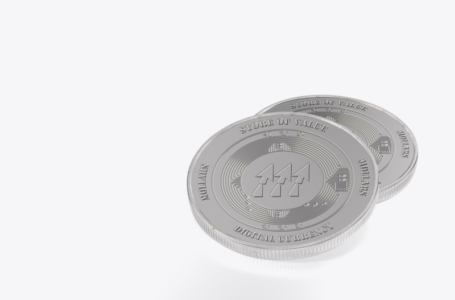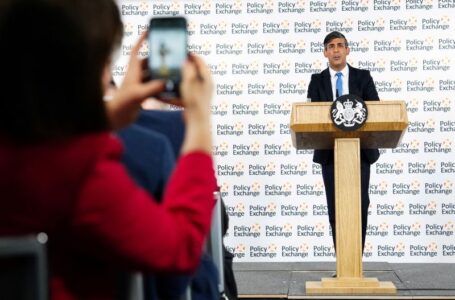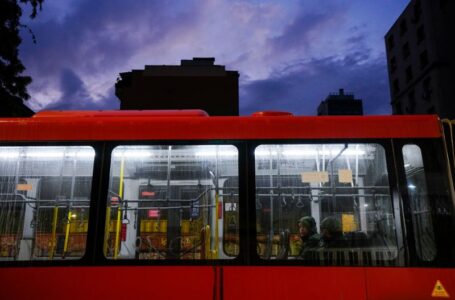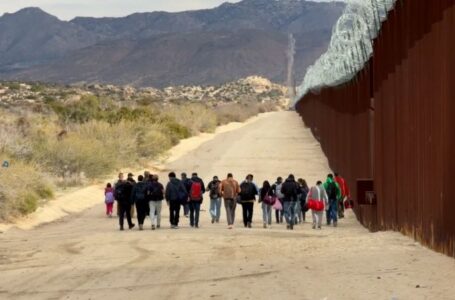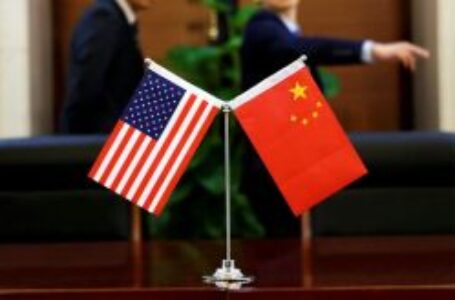Mollars Crypto Half as Popular as Pepe Token According To Google Trends
China’s Xi Jinping is visiting Europe for the first time in five years – his goodwill tour will be an uphill struggle
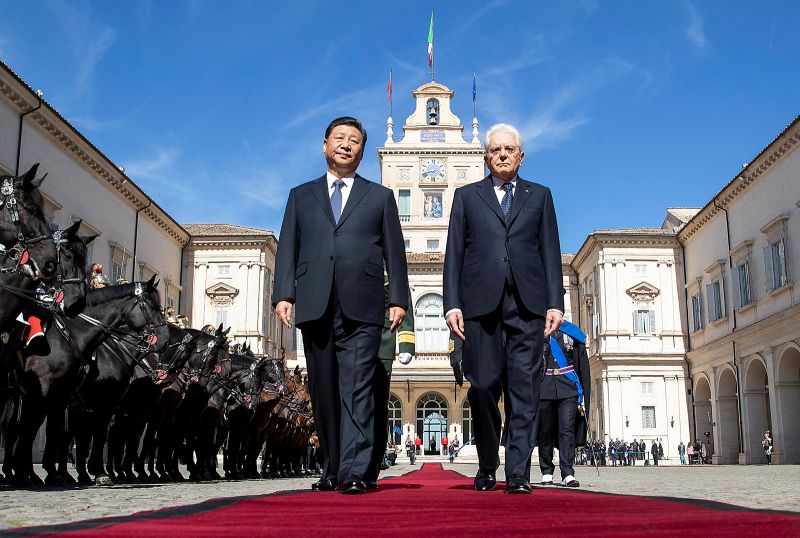

When Xi Jinping arrived in Italy for a state visit in 2019, he was given a lavish welcome, with private tours of Roman landmarks and a dinner serenaded by opera singer Andrea Bocelli, topped with a crowning flourish – Italy’s decision to join Xi’s signature Belt and Road infrastructure initiative.
Five years later, on his first return to the continent since then, the Chinese leader will land in a very different climate. While the pomp and ceremony may remain as Xi begins his six-day European tour in France on Sunday, views on China across the continent have shifted dramatically.
In the past weeks alone, the European Union has launched trade probes into China’s wind turbines and procurement of medical equipment, and raided offices of Chinese security equipment maker Nuctech as part of an investigation into subsidies. Germany and the United Kingdom in recent days also arrested or charged at least six people for alleged espionage and related crimes linked to China.
And in March, Italy formally exited the Belt and Road, costing the program its only G7 member country, in a blow to China and its leader.
Behind these developments are mounting economic grievances that have the EU preparing for a potential major trade confrontation with China – as well as growing suspicions about Beijing’s global ambitions and influence driven by alarm over China’s deepening ties with Russia as it wages war against Ukraine.
“China is seen increasingly as a multi-faceted threat in many European capitals. But there are divisions within Europe over how fast and far to go in addressing concerns about China, both in the economic and security spheres,” said Noah Barkin, a Berlin-based visiting senior fellow at the German Marshall Fund of the United States.
Now, Xi’s trip – with stops in France, Serbia and Hungary – is an opportunity to woo his critics, but also showcase that even as views are hardening in some parts of Europe, others still welcome China with open arms.
Beijing is keen to dampen Europe’s push to address alleged trade distortions, which would come at a bad time for its flagging economy. It also wants to ensure Europe doesn’t draw any closer to the US, especially amid uncertainty over the outcome of the upcoming US election.
Major breakthroughs with China’s toughest critics will be hard to come by unless Xi is ready to make surprise concessions. And the trip could instead serve to underscore divisions – not only between Europe and China – but those within Europe that could play to China’s favor, analysts say.
Trade frictions
Xi’s visit is set to start with one of his toughest critics.
The Chinese leader is slated to meet European Commission President Ursula von der Leyen alongside French President Emmanuel Macron on Monday.
Von der Leyen has spearheaded the EU’s rallying cry to “derisk” its supply chains from China over concerns about securing its key technologies, and is driving a high-stakes anti-subsidy investigation backed by France into the influx of Chinese electric vehicle (EV) imports to Europe.
China earlier this year opened an investigation into the price of EU-imported brandy in a move that could hit France’s cognac sector and is widely seen as retaliation for the probe.
In his meetings, Xi will likely press Beijing’s message that “derisking” from China is perilous for Europe – while pushing back on European concerns about China’s alleged overcapacity and subsidies and instead highlighting the role Chinese EVs can play in European and global efforts to reduce the use of fossil fuels.
Xi used similar rhetoric in a meeting in Beijing with German Chancellor Olaf Scholz last month, in which critics accused the German leader of being too soft on China.
But such talk, without any tangible trade or reciprocal market-access commitments, is unlikely to move the needle for Von der Leyen, who wants to find ways to address perceived trade distortions before EU parliamentary elections in June, observers say.
Xi may instead see more opportunity to win goodwill during his one-on-one time with Macron, which is expected to include not only meetings in Paris but what Elysee sources described as more “personal” time in the Pyrenees mountains of southern France.
“France has built this reputation of being a fairly independent actor in the EU and willing to create some space with the US,” said Chong Ja Ian, an associate professor of political science at the National University of Singapore.
“Xi may want to work on Macron to see if he can get more European distance from North America,” as well as tightening his rapport with this important EU player, Chong said.
Push for peace
The war in Ukraine – a crucial sore point in Europe-China relations – is also expected to be on the agenda in meetings early this week, where Xi may seek to bolster China’s attempts to position itself as peacemaker.
“President Xi will explain to President Macron about China’s relations with Russia … (that) China can be a broker to bridge the gaps between Europe and Russia,” said Wang Yiwei, a professor of international relations at Beijing’s Renmin University, pointing to an upcoming peace summit in Switzerland as a potential venue for a diplomatic push.
But Beijing has appeared to do little to move the Kremlin toward European visions for peace in Ukraine, despite repeated efforts to push Xi to use his rapport with President Vladimir Putin. Putin has said he plans to visit China this month, according to Russian state media.
Xi’s visit comes as the US and its European allies grow increasingly vocal about concerns China’s exports of dual-use goods to Russia are powering its war machine. Beijing defends that trade as a regular part of its bilateral relations.
Macron and Von der Leyen would likely warn Xi their relationship “risks deteriorating further” if China continues to provide those goods, according to Barkin in Berlin.
However, “there is little evidence that these messages are leading to noticeable changes in Beijing’s behavior,” he said, adding that “at some point soon” Europe could decide to move more aggressively in sanctioning Chinese firms selling such goods.
A warmer welcome
Xi’s stops in Serbia and Hungary are likely to be much less contentious – something the Chinese government likely factored in when mapping out the visit, observers say.
“In Belgrade and Budapest, Xi will not have to listen to the criticism he hears in other European capitals,” said Barkin. “Their leaders welcome Chinese investment, and they don’t have a problem with China’s deepening ties to Russia.”
Xi’s visit to Belgrade will coincide with the week of the 25th anniversary of NATO’s bombing of the Chinese embassy in Belgrade that killed three. The attack, part of a wider bombing campaign by NATO in the Balkans during the spring of 1999, drove Beijing’s deep enmity for the alliance, even as the US said it was an accident.
Any commemoration of the event by Xi could underscore the deep divisions between the China and NATO, which Beijing sees as an embodiment of American overreach and a source of Europe’s security challenges – a view that has driven it closer to Russia.
Xi may also look to highlight Chinese investments in both Belgrade and Budapest in a message to the rest of Europe.
Non-EU member Serbia, which Beijing earlier this week described as an “iron-clad” friend, has seen growing trade and investment ties with China under President Aleksandar Vučić.
In January, the Balkan nation announced a deal that could see more than $2 billion of Chinese investment in wind and solar power plants and a hydrogen production facility, Reuters reported at the time.
In Hungary, Xi will look to deepen his relationship with increasingly authoritarian Prime Minister Viktor Orban – a useful ally for China in the European Union, where he has blocked or criticized EU efforts to hold China to account on human rights issues.
The central European country has also emerged as an increasingly important production hub in Europe for Chinese automotive suppliers including EV makers – a situation that analysts say could help Chinese firms maneuver around existing and potential EU tariffs.
That means Xi is likely to exit his trip on a very different note from the one he begins with.
“There, at least, the optics will be that there’s a lot of acceptance of Xi,” said Chong.

